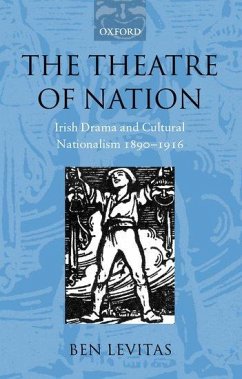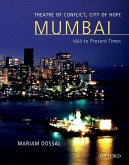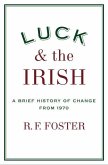What role did the theatre of the Irish literary revival play in the politics of identity so avidly debated in pre-revolutionary Ireland? Conversely, how far did that debate influence the development of the theatre? Ben Levitas pursues such vexed questions through a panoramic study of Irish drama and the nationalist debate 1890-1916. He follow the unfolding drama of that relationship and, in giving equal weight to the protagonists inside and outside the theatre movement, provides fresh insight into the dynamics of Irish cultural politics. Extending the range of the drama beyond the canonical works considered by most critics, and beyond Dublin to the influence of Cork and Ulster, The Theatre of Nation tackles many neglected and forgotten texts which through the circumstances of their reception are given new force. In this way, the lesser lights of the Irish revival illuminate unfamiliar aspects of familiar writers such as W. B. Yeats, Lady Gregory, and J. M. Synge, while discussions and disputes both private and public are engaged to comment upon the implications of the theatre movement for nationalist ambitions. The evolution of cultural and political nationalist groups such as Irish Ireland, the Gaelic League and Sinn Fein is similarly examined to reveal a shifting terrain of nationalist opinion disturbed by issued of class, gender, and generation. An integrated investigation of the politics of drama and its influence in Ireland, The Theatre of Nation concludes that Ireland's theatre had a pivotal role to play in the controversies of its time and in the coming revolution.
Hinweis: Dieser Artikel kann nur an eine deutsche Lieferadresse ausgeliefert werden.
Hinweis: Dieser Artikel kann nur an eine deutsche Lieferadresse ausgeliefert werden.








